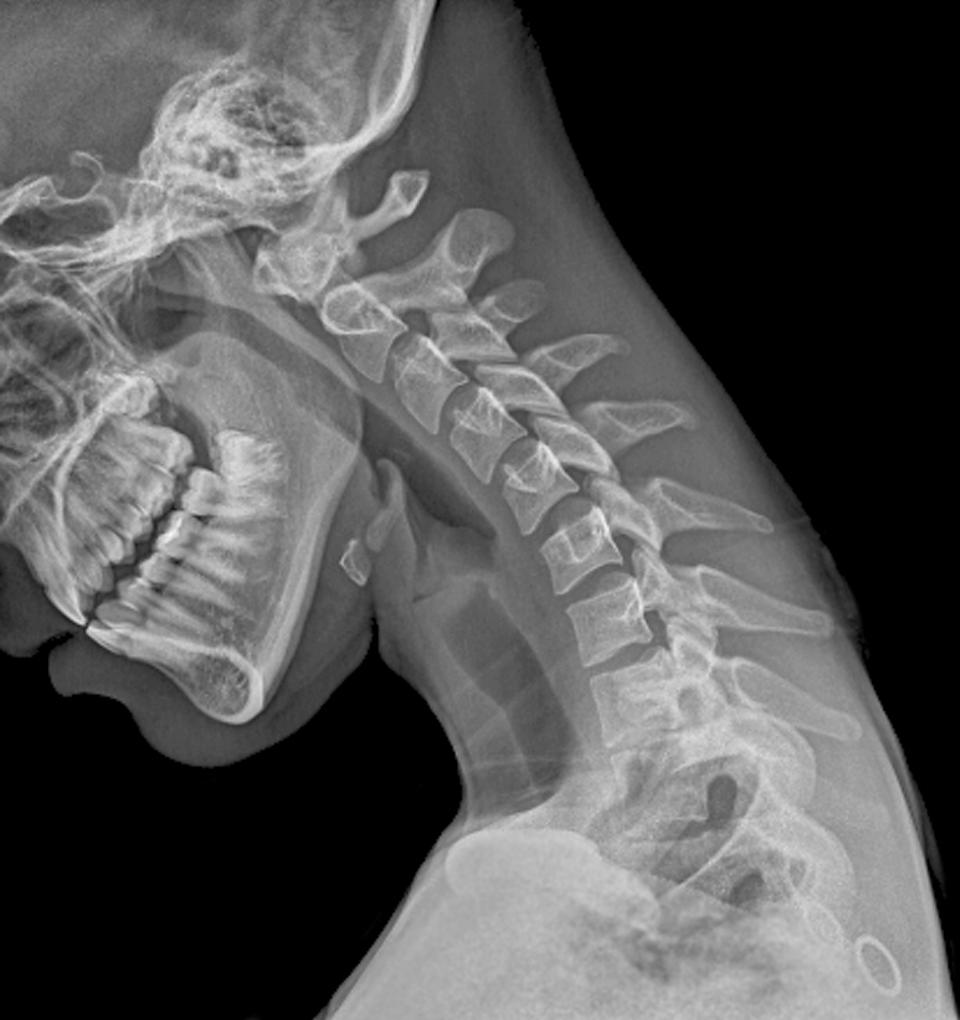What The Health?! British teenager paralyzed after falling from his couch

Can leftover spaghetti really kill you? Can you actually cough up a blood clot in the shape of your lung? In Yahoo Lifestyle Canada‘s newest series, What The Health?!, we ask doctors to weigh in on odd health news stories and set the record straight. Be sure to check back every Friday for the latest.
A 17-year-old boy has become paralyzed from the neck down after playing with his dogs on the couch.
England’s Harvey Leyland was playing with his dogs, Hugo and Charlie, this past summer when one of them pulled a cushion out from the sofa he was lying on. The teen fell to the tile floor head-first. Although he made his way upstairs after the fall, Leyland had a seizure moments later. A family member called an ambulance, and during the seven minutes it took for paramedics to arrive, he began having trouble breathing and communicating. An MRI scan found that Leyland had suffered two mini strokes and one spinal stroke, which resulted in injury to his vertebrae.

The boy, who loved riding horses, now uses a wheelchair that he operates with his chin.
“To see your child go from running around and being active to this is heartbreaking,” said Leyland’s mom, Angela.
According to a Go Fund Me page his family launched to adapt their home to accommodate his medical needs, it’s unlikely Leyland will ever walk or move his upper limbs again. He’s expected to return home after approximately four months in hospital, where he’s under observation and receives physiotherapy.
ALSO SEE: What the Health?! Can you really die from burning your throat on hot foods?
While some might call Leyland’s case a freak accident, it’s an example of how falls from even minor heights can potentially have a devastating impact.
“For most people who break their neck and receive a spinal cord injury that paralyzed them from the neck down, that happens when you hit the top of your head,” says Peter A. Cripton, director of the biomedical engineering undergrad program at the University of British Columbia in Vancouver. “It’s usually a headfirst impact like somebody being checked into the boards in hockey or diving into shallow water and hitting your head on the bottom.”

A broken neck doesn’t always cause paralysis, but this can occur if the nerves of the spinal cord get damaged as a result. In his lab, Cripton and his team have used cadaver spines to understand things like what kinds of muscle activation patterns and spinal postures have to exist to sustain spinal-cord injury. To break your neck, you usually need to hit the top of your head and be moving faster than three metres per second, or 10.8 kilometres per hour, which corresponds to a drop height of half a metre, Cripton says.
ALSO SEE: What The Health?! Woman's ruptured brain cyst originally misdiagnosed as migraines
Although he can’t comment specifically on Leyland’s case, he believes that the injury could have occurred if he hit the top of his head on the floor after falling form a height greater than half a metre and had his neck in a vulnerable position.
“If the injured person fell off of a couch that was about as high or greater than 0.5 metres high, then there is enough energy in the fall to cause the neck fracture,” says Cripton, who’s also a professor of mechanical engineering in UBC’s School of Biomedical Engineering. “You have to be unlucky enough that you have activated your neck muscles and that your neck posture—the spine in your neck’s posture—is in a vulnerable posture.

“We think the most vulnerable posture is when the spine is aligned like a straight column,” he explains. “When people brace for an impact, most of them seem to activate their muscles so that the spine increases its curvature, and that may be protective, but a small percentage of people brace for impact in a way that decreases their spine curvature and causes their spine to become more column-like, and thus more vulnerable.”
ALSO SEE: What to say — and not say — when a friend tells you, 'I have breast cancer'
Cases like Leyland’s are extremely rare, but are a reminder of how fragile the human body is.
“You don’t need that much energy, but you have to have very bad luck for it to happen with such a low height fall,” Cripton says. “It’s terrible and tragic. It’s amazing how tough we are and also how vulnerable we are.”
Let us know what you think by commenting below and tweeting @YahooStyleCA! Follow us on Twitter and Instagram.



